
Find Help
More Items From Ergsy search
-

How might a wealth tax affect wealthy individuals?
Relevance: 100%
-

What is a Wealth Tax?
Relevance: 64%
-

What are common arguments in favor of a wealth tax?
Relevance: 63%
-

What is the Wealth Tax in the UK?
Relevance: 63%
-

What is the objective of a wealth tax?
Relevance: 60%
-

Why doesn't the UK have a wealth tax?
Relevance: 60%
-
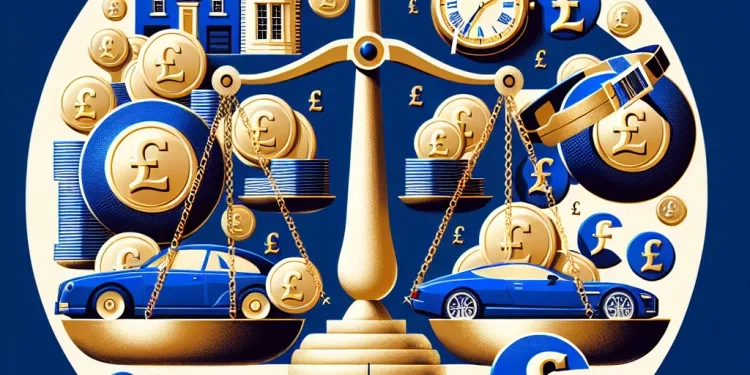
What arguments are made for a wealth tax in the UK?
Relevance: 60%
-

Could a wealth tax encourage tax avoidance?
Relevance: 59%
-

Can a wealth tax be levied annually?
Relevance: 59%
-

How might a wealth tax impact inequality in the UK?
Relevance: 57%
-

Would a wealth tax replace other taxes in the UK?
Relevance: 57%
-

What is the wealth tax in the UK?
Relevance: 56%
-

Could a wealth tax affect economic growth in the UK?
Relevance: 56%
-
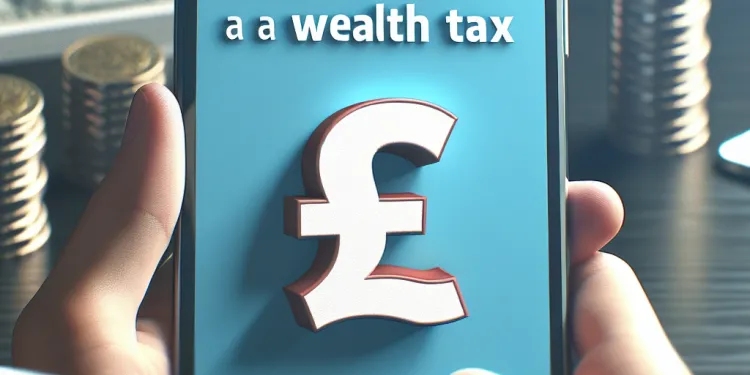
What are the challenges of implementing a wealth tax?
Relevance: 55%
-

Who is typically subject to a wealth tax?
Relevance: 55%
-

How does a wealth tax differ from an income tax?
Relevance: 54%
-
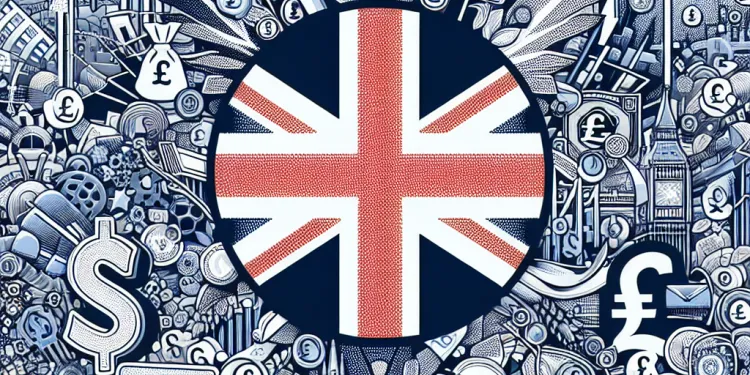
How do other countries implement a wealth tax?
Relevance: 54%
-

How is a wealth tax typically calculated?
Relevance: 53%
-

Can a wealth tax impact economic behavior?
Relevance: 52%
-

Has any political party in the UK supported a wealth tax?
Relevance: 51%
-

How do economists view the impact of wealth taxes?
Relevance: 51%
-

Has the UK ever had a wealth tax?
Relevance: 50%
-

What are the administrative costs of a wealth tax?
Relevance: 48%
-

Are there any countries currently implementing a wealth tax?
Relevance: 48%
-

Is real estate included in wealth tax calculations?
Relevance: 48%
-

Would a wealth tax apply to foreign assets?
Relevance: 48%
-

How do governments ensure compliance with wealth tax laws?
Relevance: 46%
-

How does council tax relate to wealth in the UK?
Relevance: 44%
-

What are common criticisms of a wealth tax?
Relevance: 40%
-

Are there alternatives to a wealth tax for addressing inequality?
Relevance: 40%
-

What exemptions are commonly associated with wealth taxes?
Relevance: 39%
-
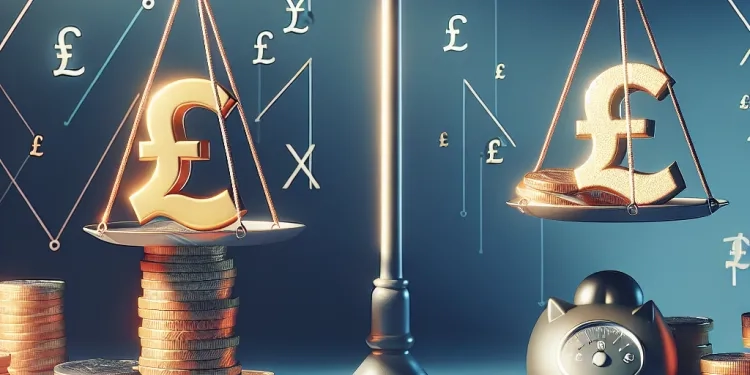
What taxes in the UK target wealth?
Relevance: 36%
-

How does inheritance tax affect non-UK domiciled individuals?
Relevance: 35%
-

Do wealth taxes differ between countries?
Relevance: 35%
-
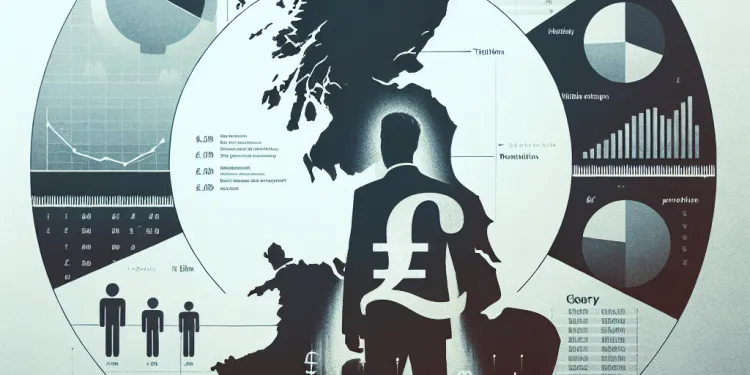
Do public opinion polls support a wealth tax in the UK?
Relevance: 33%
-

What types of assets are typically subject to a wealth tax?
Relevance: 32%
-

Has the idea of a wealth tax been discussed in political debates?
Relevance: 31%
-

Is there a proposal for a wealth tax in the UK?
Relevance: 26%
-

Are there professional advisors for inheritance tax planning?
Relevance: 25%
-

Is there a difference between inheritance tax and estate tax?
Relevance: 24%
Introduction to Wealth Tax
A wealth tax is a levy on the total value of personal assets, including assets like cash, real estate, investments, and luxury items. In the context of the UK, the discourse around implementing a wealth tax has gained attention as a means to address increasing inequality and generate public revenue. This approach would primarily target the wealthiest individuals, significantly impacting their financial planning and asset management.
Impact on Asset Management
One of the most direct effects of a wealth tax on wealthy individuals would be on their asset management strategies. High-net-worth individuals might need to reassess their portfolios to optimize tax efficiency. This could involve restructuring ownership, increasing investments in tax-exempt assets, or diversifying globally to mitigate the impact of domestic wealth taxes. The need for more sophisticated tax planning could lead to greater reliance on financial advisors and tax specialists.
Potential for Wealth Redistribution
Proponents of a wealth tax argue it could serve as a tool for wealth redistribution, potentially reducing the income gap. For the wealthy, this means a more significant portion of their assets would contribute to public funds, which could be used for essential services and infrastructure benefiting society. However, some wealthy individuals might view this redistribution as punitive, possibly leading to resistance or attempts to circumvent the tax through legal avenues.
Effects on Spending and Investment
A wealth tax might also influence spending and investment behaviors among the wealthy. To compensate for increased tax liabilities, some individuals might reduce discretionary spending or alter investment strategies. This could affect sectors heavily reliant on affluent consumers, such as luxury goods and services. Conversely, it might encourage investments in sectors with favorable tax implications, such as renewable energy or social enterprise initiatives.
Considerations on Wealth Mobility
There is concern that a wealth tax could encourage capital flight or induce wealthy individuals to relocate to more tax-friendly jurisdictions. This potential outflow of capital and talent may present challenges for the UK economy, impacting domestic investment and job creation. To counteract this, a wealth tax would need to be carefully calibrated to balance generating revenue with maintaining an attractive environment for high-net-worth individuals and businesses.
Conclusion
The implementation of a wealth tax in the UK could significantly impact wealthy individuals by altering their financial planning, spending, and investment behaviors. While it may contribute to reducing inequality and funding public services, careful consideration of the potential economic consequences is essential. Policymakers would need to address the risk of capital flight and ensure that the tax system remains competitive internationally to avoid adverse effects on the national economy.
Introduction to Wealth Tax
A wealth tax is a tax on everything a person owns. This includes money, houses, stocks, and fancy things like jewelry or art. In the UK, people are talking about using this tax to get more money for the government and to make everyone more equal. The tax would mostly affect rich people and change how they plan their money and what they buy.
Impact on Asset Management
If there is a wealth tax, rich people might have to change how they manage their money and belongings. They might look for new ways to save on taxes, like buying things that are not taxed or putting their money in different countries. They might also need help from experts to plan their taxes better.
Potential for Wealth Redistribution
Some people think a wealth tax can help share money more fairly, making the income gap smaller. This means rich people would give more of their money to the government, which can be used to help everyone with things like schools and roads. However, some rich people might not like this idea and try to find ways not to pay the tax.
Effects on Spending and Investment
A wealth tax could change how rich people spend and invest their money. They might spend less on luxury items or change where they invest their money to avoid high taxes. This could affect businesses that sell expensive things, but it could also lead to more investments in things that help the planet, like green energy.
Considerations on Wealth Mobility
There is a worry that a wealth tax might make rich people move their money or themselves to places with lower taxes. This could be a problem for the UK because it might lose money and jobs. To prevent this, the tax needs to be set carefully so the UK remains a good place for rich people and businesses to stay.
Conclusion
Having a wealth tax in the UK could change how rich people handle their money, where they spend it, and what they invest in. While it might help reduce inequality and provide money for public services, it's important to think about how it could affect the economy. Policymakers need to be careful to keep rich individuals and businesses in the UK to avoid negative impacts on jobs and investments.
Frequently Asked Questions
What is a wealth tax?
A wealth tax is a levy on the total value of personal assets, including real estate, cash, investments, and business ownership, typically imposed annually.
How might a wealth tax be different from an income tax?
A wealth tax is based on an individual's total net worth, while an income tax is levied on the money an individual earns annually.
Who would be affected by a wealth tax?
A wealth tax primarily affects individuals with significant assets, often targeting the ultra-wealthy with fortunes exceeding a certain threshold.
How could a wealth tax impact the behavior of wealthy individuals?
A wealth tax might encourage wealthy individuals to change how they invest and allocate their assets to minimize tax liability, possibly influencing asset allocation strategies.
What are some common arguments in favor of a wealth tax?
Advocates argue that a wealth tax could reduce income inequality, generate revenue for public services, and decrease concentrated wealth that poses risks to democratic processes.
What are the criticisms against implementing a wealth tax?
Critics argue that a wealth tax could be difficult to enforce, lead to capital flight, reduce investment, and pose administrative challenges in valuing assets accurately.
Would a wealth tax affect charitable giving by wealthy individuals?
Some argue that a wealth tax could potentially reduce charitable donations if wealthy individuals have less disposable income, while others suggest it might increase donations as a means of reducing taxable wealth.
How might a wealth tax influence investment strategies?
Wealthy individuals might shift their investments towards assets that are less easily taxed or transfer assets to jurisdictions with no wealth tax.
Can a wealth tax impact family-owned businesses?
Yes, family-owned businesses might face challenges as the need to pay the tax could affect liquidity, possibly leading to asset sales or restructuring.
What measures can wealthy individuals take to mitigate the impact of a wealth tax?
Wealthy individuals might seek legal strategies such as trusts, relocation to tax-favorable jurisdictions, or increased charitable contributions to mitigate the impact of a wealth tax.
Is there historical precedent for wealth taxes in other countries?
Several countries have implemented wealth taxes in the past, such as France and Sweden, although some have repealed them due to various economic impacts.
How might a wealth tax affect asset valuation?
Accurate asset valuation becomes crucial, and discrepancies or undervaluations could lead to legal disputes and complex auditing processes.
Could a wealth tax cause capital flight?
Yes, there is a risk that wealthy individuals may move their assets or residency to countries without wealth taxes to protect their wealth.
Are there alternatives to a wealth tax for addressing income inequality?
Alternatives include increasing capital gains taxes, closing tax loopholes, enhancing estate taxes, and implementing progressive income tax reforms.
Would a wealth tax affect economic growth?
The effect on economic growth is debated; some argue it could discourage investment and entrepreneurship, while others believe the redistribution could spur consumer spending.
How might a wealth tax impact the housing market?
A wealth tax could lead to changes in real estate investment, possibly affecting housing prices if owners sell properties to pay the tax.
Do wealth taxes generally include exemptions or thresholds?
Yes, most proposed wealth taxes include thresholds to target only the wealthiest individuals and prevent affecting middle-class wealth.
What is the administrative cost of implementing a wealth tax?
Implementing a wealth tax could entail significant administrative costs due to the complexities of asset valuation and enforcement mechanisms.
Could a wealth tax lead to legal challenges?
There could be legal challenges regarding asset valuations, tax avoidance strategies, and potential loopholes, requiring robust legal frameworks to address disputes.
How does public opinion influence the implementation of a wealth tax?
Public opinion can greatly influence political will, as widespread support or opposition could sway policymakers in deciding whether or not to implement a wealth tax.
What is a wealth tax?
A wealth tax is money that rich people pay to the government. This tax is based on how much stuff they own, like money, houses, and cars.
Tools like pictures can help understand what a wealth tax is better. Ask someone you trust to explain more if you have questions.
A wealth tax is when you pay money on everything you own, like your house, money, stocks, and businesses, once a year.
How is a wealth tax different from an income tax?
A wealth tax is money paid on things you own, like houses and cars. An income tax is money paid from what you earn, like your salary.
Here are some ways to make this easier to understand:
- Use pictures to show the difference between owning things and earning money.
- Tell a story about someone paying both taxes to show how they work.
- Use tools like simple charts to compare wealth tax and income tax.
A wealth tax is a tax on how much stuff a person owns, like houses and money. An income tax is a tax on the money a person makes each year.
If reading is tricky, try breaking the words into smaller parts. Using a ruler to follow the lines can help too!
Who pays money if there is a wealth tax?
A wealth tax is like a special fee for people who have a lot of money and things. It mostly affects really rich people who own a lot more than most others.
How might a wealth tax change what rich people do?
A wealth tax means rich people pay money to the government because they have a lot of things and money. This tax might make them do things differently.
Rich people might:
- Spend less money on fancy things.
- Give more money to charities.
- Try to find ways to pay less tax.
If you want help understanding this better, you can:
- Use pictures to explain what taxes are.
- Talk with someone you trust about it.
- Use apps that read text out loud.
A wealth tax means rich people may change how they use their money. They might do this to pay less tax. This could affect where they choose to put their money.
Why do some people think a wealth tax is a good idea?
Some people think a wealth tax is a good idea. They say it can help make money more equal. It can bring in money for things like schools and hospitals. It can also stop a few people from having too much power, which can be bad for everyone.
Why do some people not like the idea of a wealth tax?
A wealth tax is when rich people pay more money to the government because they have a lot of money and things.
Here are some reasons why people might not like it:
- They think it is not fair to take more money from rich people.
- They worry it might make rich people leave the country.
- They say it can be difficult to know how much money and things someone has.
- They believe it might not actually help people who need it.
If reading is hard, you can:
- Ask someone to explain it to you.
- Read out loud slowly.
- Use apps or tools that help with reading.
Some people think a wealth tax is hard to use. They say it might make rich people move their money away, make them invest less, and be hard to manage because it's tricky to know exactly how much things are worth.
Here's how to make it easier to read:
- Use simple words.
- Break sentences into smaller parts.
- Use clear examples or pictures to explain points.
- Read slowly and ask someone to help if needed.
Will a wealth tax change how much rich people give to charity?
Some people say that a wealth tax might make rich people give less to charity because they have less money to spend. But other people think it could make rich people give more to charity so they have less money to be taxed on.
How can a wealth tax change how people invest their money?
A wealth tax means you pay money to the government if you own a lot of things worth a lot of money.
If there is a wealth tax, people might change how they invest their money. They might think about different ways to save their money or buy different things.
Using tools like pictures or simple charts can help explain how wealth tax works.
Also, talking to someone who knows a lot about money, like a financial advisor, can be helpful.
Rich people might move their money to places where it is harder to tax. They might also take their money to countries where there is no tax on how much money they have.
Will a money tax change family businesses?
Yes, family businesses might have problems. Paying the tax could mean they need to sell things or change how the business works.
How can rich people lower the effects of a wealth tax?
Here are some ways rich people can lower a wealth tax:
- Talk to a money expert for advice.
- Give some money to charity.
- Put money in things that are not taxed, like retirement accounts.
- Move to a place with no wealth tax.
If reading is hard, ask someone to help you read or understand the information.
Rich people might use special ways to handle their money like trusts. They might move to places where they pay less tax or give more money to charities to pay less wealth tax.
If you find it hard to read, you can use tools like a text-to-speech app. This app can read the words out loud for you. Or you can ask someone to explain the hard words.
Have other countries used wealth taxes before?
Let's find out if other places in the world have tried wealth taxes. A wealth tax is when people pay money to the government because they have a lot of money or things worth a lot.
If this feels hard to read, you can ask someone to help you. Using pictures or talking about it with a friend can also make it easier to understand.
Some countries like France and Sweden used to have taxes on wealth. But, they stopped using them because of money issues.
How can a wealth tax change how much things are worth?
A wealth tax is money that rich people must pay to the government because they own lots of things. This can be houses, cars, or even money in the bank.
Asset valuation means figuring out how much something is worth. It's like giving something a price.
A wealth tax might change how much things are worth. People might need to sell things to pay this tax. This can make the price go up or down.
To help understand, you can use pictures or videos. A calculator can also help with numbers.
It is very important to know how much something is worth. If there's a mistake or something is not valued correctly, people might argue and it can make checking the numbers very hard.
Using helpful tools or asking someone who knows more can make it easier to find the right value.
Can a Wealth Tax Make People Move Their Money Away?
Yes, rich people might move their money or live in places where they don't have to pay extra taxes on their wealth. They do this to keep their money safe.
Are there other ways to make money fair without a wealth tax?
Here is what we mean:
A wealth tax means rich people pay more money to help everyone.
But we can find other ways to share money fairly.
Here are some ideas:
- Make rich people pay more money when they earn a lot.
- Give more money to help people who earn a little.
- Make schools better for everyone.
- Help people find good jobs.
Using pictures or videos can make learning easier. You can also ask someone to explain things if you have questions.
We can look at different ways to get more money for the government. One way is to make taxes higher when people sell things like houses or stocks for more than they paid for them. Another way is to make sure people pay their fair share by closing special rules that let them pay less. We can also ask people to pay more taxes when someone gives them a lot of money or things after they die. Finally, we can change the rules to make sure people who earn more money pay more in taxes.
For help with reading, you can use tools like text-to-speech apps that read text out loud or colored overlays that make it easier to see the words. If you find it hard to understand, you can ask someone to explain the text to you in a different way.
Does a wealth tax change how the economy grows?
A wealth tax is when rich people pay money based on how much they own. We want to know if this changes how well a country's money system works. Here’s how you can think about it:
- Imagine a garden: Money and jobs are like flowers that need to grow.
- If rich people pay more taxes, does it help the garden or not?
To understand, you can:
- Use videos that explain how taxes work.
- Talk with someone who knows about money, like a teacher.
- Draw a picture that shows the garden and where taxes go.
This can help you see if a wealth tax is good or bad for growth.
People have different ideas about how this will change the economy. Some people think it might make businesses spend less money or stop new businesses from starting. But other people believe that if money is shared out more, people will buy more things, which is good for the economy.
What happens to houses if people must pay a tax on their money?
A wealth tax means people with lots of money might need to pay extra taxes. This could make some people want to sell their houses or buildings to get the money to pay the tax. If many people sell their houses, it could change how much houses cost.
Do wealth taxes have any parts you don't have to pay?
Yes, most plans for taxing wealth have rules to make sure only very rich people pay. This way, people in the middle don’t have to worry about it.
How much money does it cost to set up a wealth tax?
A wealth tax is when rich people pay money to the government. This money helps pay for schools, roads, and hospitals.
Setting up a wealth tax costs money because:
- The government needs to know how much money each rich person has.
- They need people to check and make sure this information is correct.
- They might need computers and other equipment.
To help understand better, you can:
- Ask someone to explain it to you.
- Use drawings or charts to see how the tax works.
Having a tax on money and things people own might cost a lot to set up. It's because figuring out how much everything is worth and making sure everyone pays fairly can be tricky.
Here are some ways to make reading easier:
- Use simple words and short sentences.
- Try reading out loud slowly.
- Use a ruler or finger to follow along with the text.
Can a money tax be taken to court?
There can be problems with how much things are worth, hidden ways to not pay taxes, and gaps in the rules. We need strong laws to fix these problems. Tools like picture charts or stories can help understand this better. People can also ask a helper to explain it.
How do people's opinions affect the use of a wealth tax?
A wealth tax is when rich people pay money to the government.
What people think is important. If many people like the wealth tax, the government might use it.
If many people do not like the wealth tax, the government might not use it.
Talking and listening can help people understand the wealth tax better.
Using pictures and simple words can make it easier to understand.
It can also help to ask questions and talk with others about what you think.
What people think can change what leaders decide to do. If lots of people like or do not like an idea, leaders might change their minds. This can happen with something like a wealth tax.
Useful Links
Have you found an error, or do you have a link or some information you would like to share? Please let us know using the form below.
-->
This website offers general information and is not a substitute for professional advice.
Always seek guidance from qualified professionals.
If you have any medical concerns or need urgent help, contact a healthcare professional or emergency services immediately.
Some of this content was generated with AI assistance. We’ve done our best to keep it accurate, helpful, and human-friendly.
- Ergsy carfully checks the information in the videos we provide here.
- Videos shown by Youtube after a video has completed, have NOT been reviewed by ERGSY.
- To view, click the arrow in centre of video.
- Most of the videos you find here will have subtitles and/or closed captions available.
- You may need to turn these on, and choose your preferred language.
- Go to the video you'd like to watch.
- If closed captions (CC) are available, settings will be visible on the bottom right of the video player.
- To turn on Captions, click settings .
- To turn off Captions, click settings again.
More Items From Ergsy search
-

How might a wealth tax affect wealthy individuals?
Relevance: 100%
-

What is a Wealth Tax?
Relevance: 64%
-

What are common arguments in favor of a wealth tax?
Relevance: 63%
-

What is the Wealth Tax in the UK?
Relevance: 63%
-

What is the objective of a wealth tax?
Relevance: 60%
-

Why doesn't the UK have a wealth tax?
Relevance: 60%
-

What arguments are made for a wealth tax in the UK?
Relevance: 60%
-

Could a wealth tax encourage tax avoidance?
Relevance: 59%
-

Can a wealth tax be levied annually?
Relevance: 59%
-

How might a wealth tax impact inequality in the UK?
Relevance: 57%
-

Would a wealth tax replace other taxes in the UK?
Relevance: 57%
-

What is the wealth tax in the UK?
Relevance: 56%
-

Could a wealth tax affect economic growth in the UK?
Relevance: 56%
-

What are the challenges of implementing a wealth tax?
Relevance: 55%
-

Who is typically subject to a wealth tax?
Relevance: 55%
-

How does a wealth tax differ from an income tax?
Relevance: 54%
-

How do other countries implement a wealth tax?
Relevance: 54%
-

How is a wealth tax typically calculated?
Relevance: 53%
-

Can a wealth tax impact economic behavior?
Relevance: 52%
-

Has any political party in the UK supported a wealth tax?
Relevance: 51%
-

How do economists view the impact of wealth taxes?
Relevance: 51%
-

Has the UK ever had a wealth tax?
Relevance: 50%
-

What are the administrative costs of a wealth tax?
Relevance: 48%
-

Are there any countries currently implementing a wealth tax?
Relevance: 48%
-

Is real estate included in wealth tax calculations?
Relevance: 48%
-

Would a wealth tax apply to foreign assets?
Relevance: 48%
-

How do governments ensure compliance with wealth tax laws?
Relevance: 46%
-

How does council tax relate to wealth in the UK?
Relevance: 44%
-

What are common criticisms of a wealth tax?
Relevance: 40%
-

Are there alternatives to a wealth tax for addressing inequality?
Relevance: 40%
-

What exemptions are commonly associated with wealth taxes?
Relevance: 39%
-

What taxes in the UK target wealth?
Relevance: 36%
-

How does inheritance tax affect non-UK domiciled individuals?
Relevance: 35%
-

Do wealth taxes differ between countries?
Relevance: 35%
-

Do public opinion polls support a wealth tax in the UK?
Relevance: 33%
-

What types of assets are typically subject to a wealth tax?
Relevance: 32%
-

Has the idea of a wealth tax been discussed in political debates?
Relevance: 31%
-

Is there a proposal for a wealth tax in the UK?
Relevance: 26%
-

Are there professional advisors for inheritance tax planning?
Relevance: 25%
-

Is there a difference between inheritance tax and estate tax?
Relevance: 24%


